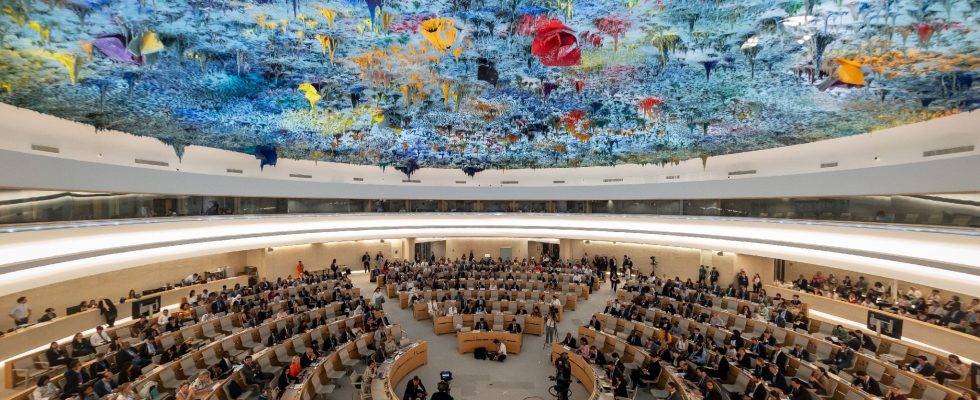Less than a week after the Groza massacre in Ukraine, Russia is applying this Tuesday, October 10 to regain a seat on the UN Human Rights Council (HRC) in Geneva. In April 2022, the General Assembly voted to “suspend” Russia from the Council due to accusations of war crimes against it.
An institution that would be weakened by the presence of Russia
The UN General Assembly chooses 15 new members for the period 2024-2026 and Russia intends to seize its chance. The 47 member states are divided into large regions; each regional group generally pre-selects its candidates who are then approved without difficulty by the General Assembly. But this year, two groups have more candidates than seats: Latin America (Brazil, Cuba, Dominican Republic and Peru, candidates for 3 seats) and Eastern Europe (Albania, Bulgaria and Russia for 2 seats ). To win a place, 97 votes out of the 193 UN member states are therefore necessary.
None of the 47 members of the UN body has a right of veto, unlike the United Nations Security Council in New York. However, decisions are subject to a vote by its members and Russia’s presence within the institution could further complicate the votes necessary to launch sensitive investigations. The image of the CDH would also be damaged and its legitimacy diminished.
“The re-election of Russia to this body, while it continues to commit war crimes and other atrocities, would be a horrible stain that would undermine the credibility” of the United Nations, insisted the deputy American ambassador Robert Wood.
Conclusions that serve as a basis for political sanctions and the courts
Although the Council has no binding power, the body strengthens the promotion of human rights in the world and examines situations of violation of these rights in order to formulate recommendations which would make it possible to remedy them. Their most powerful tool is the commission of inquiry, the conclusions of which are used by States to take political sanctions as well as by courts judging war crimes. These commissions can also recommend to the United Nations Security Council that a situation be referred to the International Criminal Court.
Last March, the Council opened an investigation into the war in Ukraine and accused Russian forces of violations that may amount to crimes against humanity. He also appointed an investigator to examine Moscow’s record on domestic rights. The report delivered in September by an independent expert, Mariana Katzarova, states that Russian authorities have “carried out mass arbitrary arrests of opponents of the war” and that those detained are in danger of death due to the “persistent use of torture and ill-treatment.
Tuesday’s vote is taking place by secret ballot, as many developing countries tire of the attention paid to Ukraine by the West.
